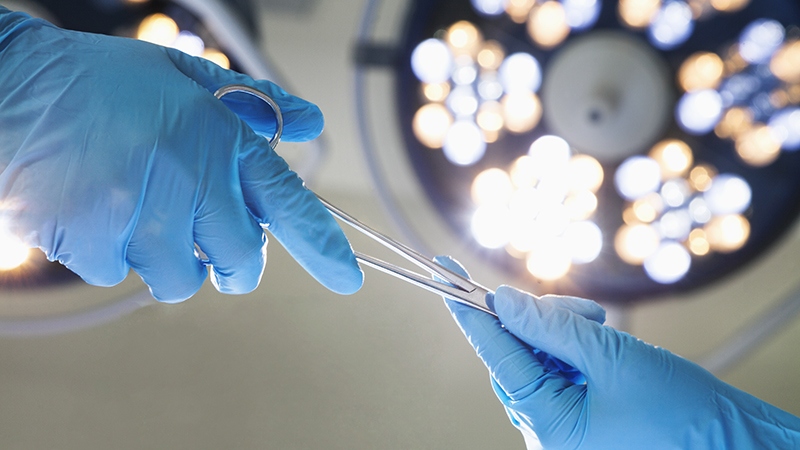Better Hygiene for Healthy Eyes
Set Your Sights on Healthier Eyes
Published December 2021
Your eyes are an important part of your health, but when it comes to hygiene, we often overlook proper care. A few healthy habits and additions to your daily routine can help you avoid infection, contamination and eye diseases.
"Your annual eye exam is the most important thing you can do for your vision," says Northwestern Medicine Ophthalmologist Nicholas J. Volpe, MD. "Most eye diseases are very treatable if caught early, which is why it's so important to get yearly eye exams and know your family history so that you can give yourself the chance to identify, monitor and treat any eye disease as early as possible."
Here's your eye hygiene checklist:
Most eye diseases are very treatable if caught early.— Nicholas J. Volpe, MD
Get an Annual Vision Exam
Even if you have perfect vision, it is important to see an ophthalmologist every year. They can see what you cannot see in your eyes. Come prepared with your family history, as many eye diseases run in families.
Remove Your Makeup Each Night
Excess debris from makeup can cause eye irritation and redness. Use warm compresses, makeup wipes or natural alternatives, such as coconut oil, to remove your makeup, especially stubborn mascara. To reduce puffiness, try finishing with a cool compress. Be sure to throw out expired or old makeup to reduce risk of infection or irritation.
Wash Your Hands
You can avoid common eye infections, such as viral conjunctivitis (pink eye), with proper handwashing. When possible, avoid sharing towels, makeup or medicated eye drops to prevent spreading bacteria to other people. Hygiene is also important for managing blepharitis (swelling of the eyelids that results in inflamed, itchy and red eyelids). Blepharitis tends to recur so proper eyelid hygiene is key.
Quit Smoking
We all know that quitting smoking is one of the best ways to improve your health — and that includes your eyes. Smoking contributes to macular degeneration, uveitis and cataracts. Smoking can also cause dry eye, when your tears are poor quality and cause fuzzy vision, like a dusty windshield. In fact, people who smoke are twice as likely to develop age-related macular degeneration and two to three times more likely to develop cataracts than people who do not smoke.
Eat Your Carrots
Your parents were right. Carrots, spinach, kale, apricots, sweet potatoes and fish contain nutrients that support better vision.
These nutrients include:
- Vitamin C
- Vitamin E
- Omega-3 fatty acids
- Calcium
- Zinc
- Lutein and zeaxanthin, found in dark green leafy vegetables
Studies show that eating a diet rich in these nutrients can help reduce risk of eye diseases like age-related macular degeneration and cataracts.
Treat Your Contacts Well
Contact lenses, that is. Always wash your hands with soap and water before removing your contact lens. Use fresh solution every night. If you have been using the same storage case since you started wearing contacts, throw it out and replace it every three months. Do not use tap water to rinse your contact lenses. It is not sterile and contains microorganisms that can lead to serious infections. Also, it is safest to remove contacts before going to sleep.
Dispose of your contacts as recommended by your eye care physician. Do not try to extend the life of your contacts beyond the approved replacement schedule. Even though the lenses may still feel OK in your eyes, the protein and mucus starts to build up on your lenses. This increases your risk for infection and inflammation. If you develop a corneal infection and inflammation, you will not be able to wear your contact lenses for days, or even weeks. It may even result in corneal scarring and vision loss.
Wear Sunnies
Sunglasses are more than a fashion statement — they protect your eyes from the sun's harmful ultraviolet A (UVA) rays and ultraviolet B (UVB) rays, which in the long run can cause macular degeneration and cataracts. Skin cancer can occur right around your eyes and even in your eyes, so your pair of specs should offer 99% protection against UVA and UVB rays. Sunglasses protect the thin eyelid skin that we do not apply sunscreen to.
Be Aware of Blood Sugar
Diabetic retinopathy is the leading cause of vision loss and preventable blindness among 24 to 64 year olds in the U.S. with type 1 or type 2 diabetes. Poorly controlled blood sugar is a risk factor. If you have diabetes, be sure to get a dilated eye exam every year.
Eye hygiene is important, and the number one way to protect your vision is with an annual eye exam.







